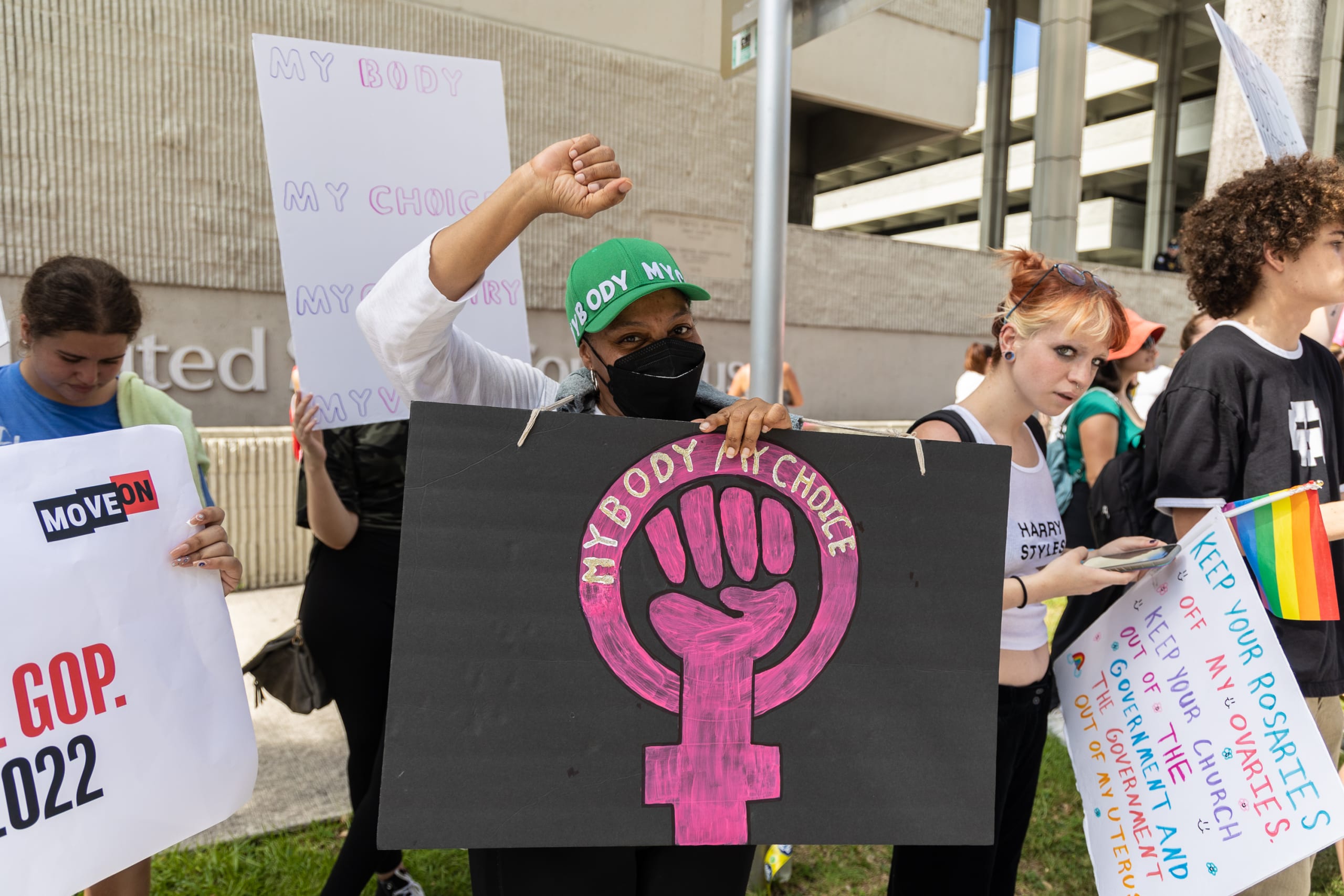We bring news that matters to your inbox, to help you stay informed and entertained.
Terms of Use and Privacy Policy Agreement
WELCOME TO THE FAMILY! Please check your email for confirmation from us.
“[This] is an unprecedented, unconstitutional, and unacceptable level of government overreach and intrusion,” Kara Gross, ACLU legislative director and senior policy counsel, told theGrio.
The Florida State Senate approved a bill that would ban most abortions after six weeks, which opponents say will threaten the lives of many Black and brown women living in the Sunshine State.
Kara Gross, legislative director and senior policy counsel at the American Civil Liberties Union (ACLU) of Florida, is calling the state’s proposed statute “dangerous” and “a near total abortion ban.”
The legislation would prohibit physicians from terminating pregnancies after six weeks of gestation; however, if a woman is faced with life-threatening complications during her pregnancy, then a physician is permitted to terminate the pregnancy in order to save the woman’s life.
The bill would also permit physicians to conduct an abortion up to 15 weeks for pregnant women who are victims of human trafficking, rape or incest.
This move comes a year after Governor Ron DeSantis signed a bill into law that prohibits abortions at the 15-week mark, which went into effect following the Supreme Court’s 2022 ruling to overturn Roe v. Wade.
Earlier this year, Florida’s Supreme Court granted cert to a suit filed by Planned Parenthood, the ACLU, and several other abortion providers who opposed the 15-week abortion ban, calling it unconstitutional.
Gross said that this latest proposed statute “Is an unprecedented, unconstitutional, and unacceptable level of government overreach and intrusion.”
She continued, “[This bill] completely disregards the majority of Americans’ desire, which is the freedom to control their lives, their bodies, their health care and their future…it’s a six-week ban, but it’s from the first day of the last menstrual period. So, that is four weeks post-fertilization or two weeks past missing your period.”
According to the National Institutes of Health (NIH), most women become aware of their pregnancy a little after 5 weeks of gestation. But if other factors come into play – such as mistimed pregnancies, income status, or lack of education – they may not detect their pregnancy until several weeks later.
If this bill were enacted into law, there is a chance that many women in Florida could unintentionally miss the proposed timeframe to get an abortion.
On Tuesday, Florida residents took to the Tallahassee City Hall building to peacefully demonstrate and publicly oppose the abortion bill.
According to The Guardian, several lawmakers were among the crowd, including Florida Democratic Party Chairwoman Nikki Fried and Democratic Senate Minority Leader Lauren Book.
Police arrested both lawmakers and several others during the protest and charged them with trespassing after the group refused to leave the premises.
Fried took to Twitter to share her thoughts about the bill in a post that read, “We protest to honor the sacrifice of all the women who came before us, and all the women who are coming after us. Women’s rights are human rights. And human rights must be inalienable.”
Book also responded to the proposed statute and stated on Twitter, “The Florida Senate just voted to give sacs of cells & even the deceased more rights than living, breathing, women & girls – not just equal rights…MORE!”
She then called the bill discriminatory “on the basis of sex” and stated, “only WOMEN are forced to give their bodies to someone/something without consent.”
If passed into law, this bill will disproportionately impact marginalized communities.
Gross told theGrio, “These types of anti-abortion bans particularly target Black and Latinx people. As well as anyone who’s trying to make ends meet.”
She continued, “They are hit hardest because of decades of racism and structural inequality within our health care system.”
In the event the abortion ban takes place, Gross says South Carolina is the closest state where Floridians can travel in order to access abortion care.
“Getting to South Carolina from anywhere in the state is insurmountable for many people,” she explained. “It’s costly, people need to take time off from work and time off of school and these are things that many people cannot do.”
What is more alarming is that this ban could be catastrophic for Black or brown women who may not have the resources to travel to South Carolina or another state in order to access abortion care. As a result, women may be forced to carry their pregnancies to term.
Gross emphasized during an interview with theGrio that the bill “would force people to have pregnancies against their will,” and for Black women, that would have devastating effects because the “maternal mortality rate is three times higher for Black women than it is for white women” in the state of Florida.
She continued, “Forcing someone to carry a pregnancy against her will, has life-altering consequences, including enduring serious health risks from continued pregnancy and childbirth, which makes it harder to escape poverty and derails education and career and life plans.”
According to PBS, the new bill will take effect only if it passes in the Florida House of Representatives, is signed by Gov. DeSantis, and if the state’s Supreme Court affirms the current 15-week ban legislation.
In the meantime, Gross said that members of the ACLU are “educating the public, reaching out to lawmakers and talking to the media to get the word out about how awful this” legislation is in hopes of preventing it from being enacted into law.
TheGrio is FREE on your TV via Apple TV, Amazon Fire, Roku and Android TV. Also, please download theGrio mobile apps today!

